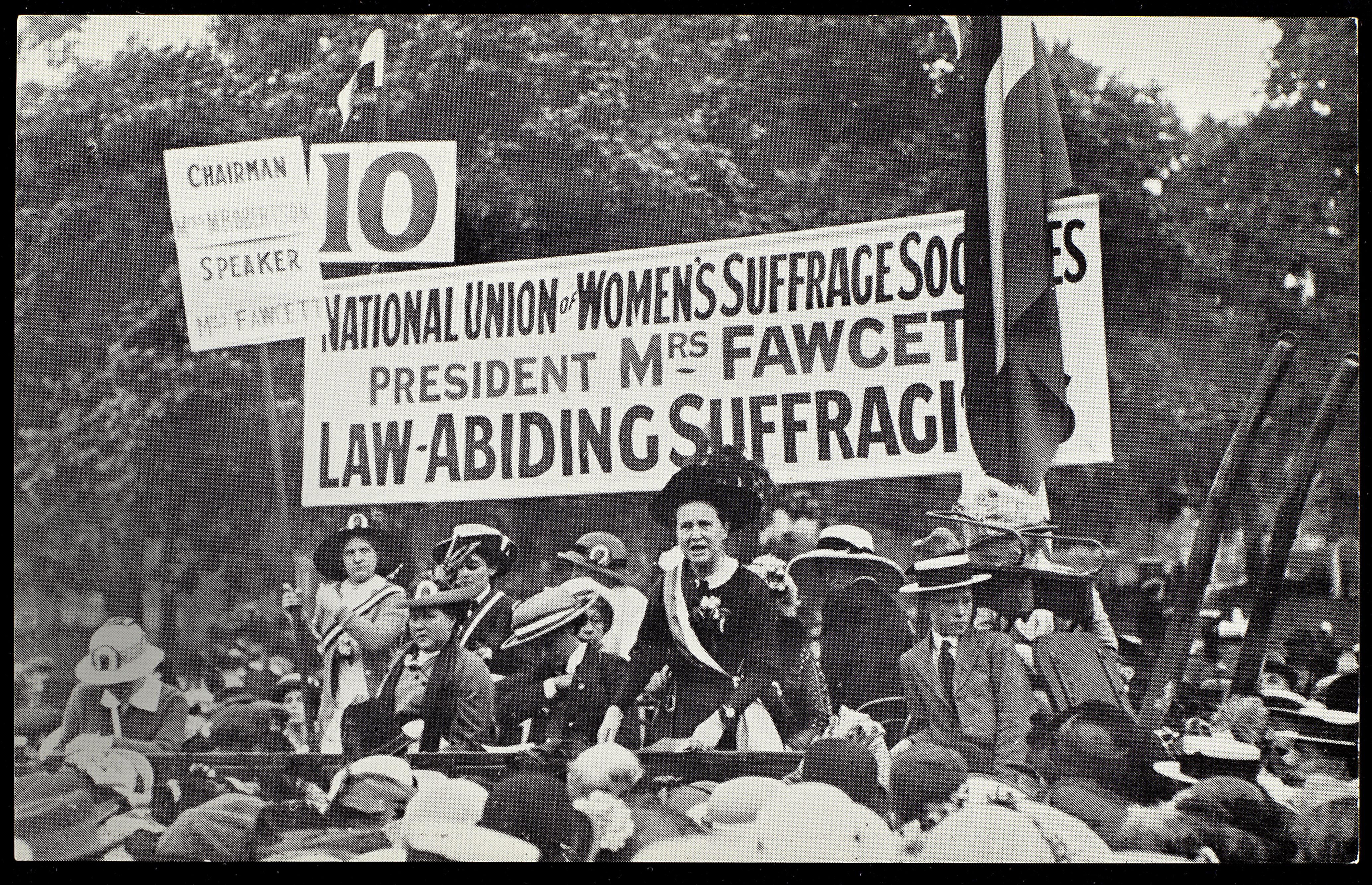Today February 6th represents the 100th anniversary of (some) women receiving the right to vote in the UK. I wanted to use today’s post to celebrate the work of female campaigners who have challenged the status quo in support of female rights. There has been much debate in the run up to this anniversary about who would be nominated to be the most influential woman of the past 100 years. I plan over the coming months to highlight in my blog some of the women who have influenced my thinking and who have inspired me in some way. Whilst they might not all be able to take the title of the most influential women of the past 100 years, Millicent Fawcett could, and I felt that on this particular anniversary I should say a few words about why Millicent Fawcett is so important to me.

Millicent Fawcett’s Hyde Park address in 1913. Image via The Women’s Library at LSE
Millicent was a suffragist and the leader of this lesser known strand of the female suffrage movement, having formed the National Union of Women’s Suffrage Societies in 1897. The reason as to why she is important to me lies at the difference between the suffragettes and the suffragists. Whilst the suffragettes have largely been credited with gaining the vote, the suffragists have been somewhat overlooked. The suffragists believed they would achieve their end using peaceful tactics – non-violent demonstrations, petitions and the lobbying of MPs. The suffragettes on the other hand believed in ‘deeds not words’ and from 1912 onwards they used militant and violent methods of campaigning, including window smashing and hunger-strikes. Their movement grew out of Emmeline Pankhurst’s impatience with the middle class, respectable tactics of the suffragists and so in 1903 established a separate society – the Women’s Social and Political Union (WSPU). Whilst it was the dramatic and memorable actions of the suffragettes that are most clearly remembered, and have therefore dominated much of the historical narrative around this crucial marker in female empowerment, history nevertheless shows that most civil rights movements need political representation. The campaigning and lobbying that Millicent undertook in convincing politicians that they could and should establish a parliamentary majority in favour of women’s suffrage was absolutely crucial to securing the vote. The suffragists had to demonstrate to politicians that allowing women to vote would win them the votes of a significant portion of the population. Ultimately without this, it would never have been in the government’s interest to invest in reform.
This year, almost ninety years after her death, Millicent will become the first woman to have a statue in Parliament Square, designed by the first woman to have her work displayed there, Turner Prize-winner Gillian Wearing. Wearing’s design features Fawcett holding a placard which will read “courage calls to courage everywhere”. These words were a testament to the bravery of Emily Davison, who died in the fight to get women the vote. Millicent’s solidarity with sisters in the movement is also reflected on the plinth of the statue, which bears the names of other courageous women who fought for female suffrage.
This monument reminds us that the success of the suffrage movement lies not only in heroes such as Fawcett, but also in the collective belief and action of thousands of others. This is also central to my thinking. I want to, as an academic leader, bring about change within the fashion industry by educating our students to take on the challenges such as climate change and modern slavery. I am inspired by a campaigner such as Millicent who worked within the law to bring about momentous change. She proved that negotiation, campaigning and determination can bring about change. I believe in protest and solidarity. I believe we all have agency. That we can, like Millicent, lobby politicians and other influencers in the causes we believe in. That we can also demonstrate our commitment to the cause of changing the fashion industry by making sure we consider what we buy, what we wear, and our actions can help support (or negate) the rights of women everywhere.
Over the last 100 years there have been great changes for women. But as the recent disputes at the BBC and the problems that the #MeToo generation are highlighting – our fight is far from over. Let’s use our agency, that people like Millicent Fawcett fought so hard to defend, to continue to fight for equality.
#LCFYearofTheWoman




